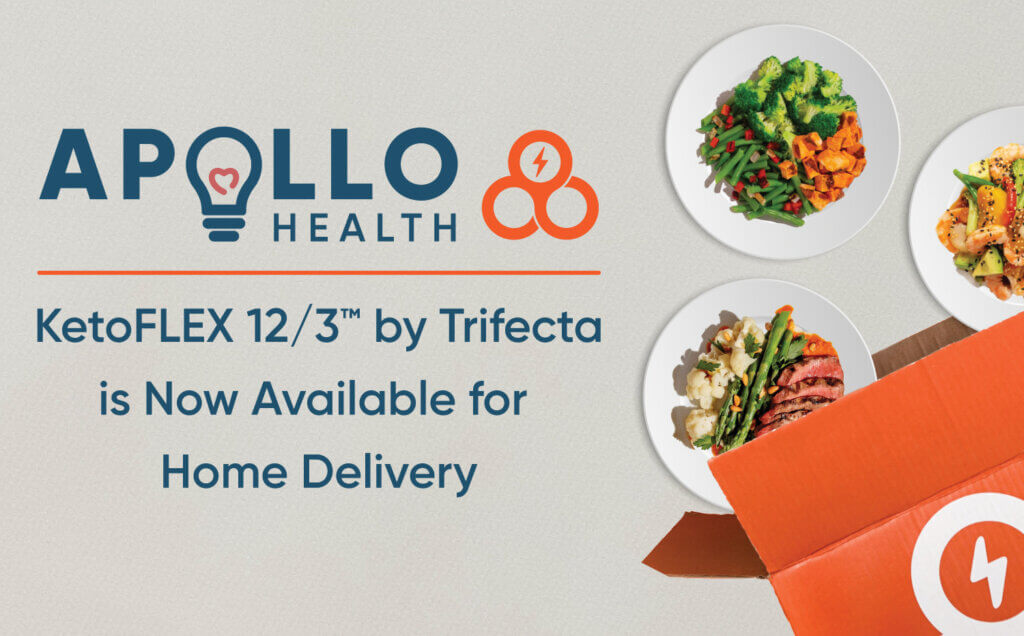November 17, 2021
Fasting and Feasting


By Julie Gregory, Chief Health Liaison for Apollo Health
As I prepare for the Thanksgiving holiday, I recently pondered my relationship with food and how much it’s drastically changed. Despite the fact that I’m metabolically healthy now, I wasn’t always. When I began my brain health journey almost ten years ago, I was 20 lbs. heavier than I am now. Despite my health transformation, one thing has remained constant, I love food, pretty much any and all food. At one time, I enjoyed food so much that I used to have trouble controlling the amount that I ate, which eventually led me to become insulin resistant.
I’d been quite thin and willowy all of my life, including my adult life. It wasn’t until multiple events occurred all at once that led me to suddenly have a problem controlling the amount of food that I ate. In my late 40s, I was thrust into rather abrupt menopause following uterine surgery that resulted in a loss of ovarian function. This caused my already wacko premenopausal hormones to change course from estrogen dominance to almost complete estrogen absence overnight. At the same time, I took high dosages of potent antihistamines to address a condition called mast cell activation, where sufferers can experience extreme allergy symptoms despite the absence of allergies. Mine was so severe that I even had to use an epipen once to halt an episode of anaphylaxis. (I later learned that this condition was likely secondary to a tick bite illness and mold exposure — aka Chronic Inflammatory Response Syndrome (CIRS) — that I learned about much later.)
The abrupt onset of menopause combined with the massive amount of antihistamines I was taking wreaked havoc with my appetite. My always fast metabolism suddenly slowed to a crawl, while at the same time, the antihistamines increased my appetite. I remember always feeling hungry. The worst part was that menopause led me to have dozens of hot flashes throughout the day that felt a lot like the onset of life-threatening anaphylaxis, which dramatically increased my stress level. My once predictable body was sending me so many new signals, I was struggling to keep up and understand what they meant. I quickly learned that eating a small snack calmed everything down. I began to eat more and more just to create a steady-state.
Over time, as I began to put on weight, I also began to experience recurrent periods of hypoglycemia throughout the day. Unbeknownst to me, my blood glucose was likely spiking, then dramatically dropping. So, I began checking it for the first time. My blood glucose was so low; it would often stop recording numbers and just read “LOW.” A few times, I almost lost consciousness. I was even experiencing hypoglycemia in the middle of the night. The hypoglycemia led me to eat even more frequently in an effort to stabilize my blood glucose.
I was incredibly fragile during this time. I knew I needed to exercise to lose the weight I had gained, but it felt impossible. I remember trying to walk around the block. Of course, I had to carry an epipen and emergency antihistamines (in case of anaphylaxis), snacks (in case of hypoglycemia), water (to stay hydrated and help to control my unstable blood pressure), and I needed a support partner in case of emergency. All of my supplies required a wagon that my husband pulled. We were joined by our beloved family dog, who didn’t want to miss the excitement. How pathetic I had become!
The worst part was that my physicians, who were kind, smart, and good people, had little to offer me besides more prescriptions. No one ever mentioned the term “insulin resistance.” When I spoke about my hypoglycemia, I was told to eat more often, to include more carbohydrates or even fruit juice to quickly replenish my plummeting blood glucose … which, of course, is the exact opposite of what my body needed.
Fast forward to today, where I’ve taken my health into my own hands, healed my insulin resistance, and restored my metabolic flexibility — the ability to burn either glucose or ketones as fuel — which in turn provided the foundation to heal my cognition. You can read my whole story in The First Survivors of Alzheimer’s and the diet and lifestyle instructions for restoring insulin sensitivity and cognition in The End of Alzheimer’s Program.
I share all of this because I suspect that many people can relate. It’s so common to become insulin resistant as we approach middle age. Unfortunately, this common condition impedes our brain’s ability to effectively use glucose as fuel, creating a neural fuel shortage that ultimately leads to cognitive decline. I’ve often heard Dr. Bredesen say, “Alzheimer’s disease is a disease of insufficiency born by excess,” exactly what I had experienced.
Whereas once over-indulging in food led me to become metabolically broken, I’m now healed by engaging in a long daily fast with exercise. I still enjoy food and feast on a daily basis, but it’s balanced by a long period without food. This provides an opportunity for my glycogen stores to deplete, naturally creating a state of ketosis, exercising my metabolic flexibility.
The strategies I used to heal my metabolism mimicked an ancestral lifestyle. Early man very likely went long periods without eating (when food was scarce) and physically labored as hunter-gatherers to find food. They would have been awakened by the sunrise and slept with the sunset, refraining from artificial blue lights and late-night eating. By honoring my still primitive genome and following this ancestral pattern, I was able to heal.
We’ve created a new educational guide for Apollo Health subscribers entitled “Reclaiming Your Metabolic Flexibility” that examines how insulin resistance affects the brain as well as providing instructions for how to create a healthy metabolism.
By reclaiming my metabolic flexibility, I now enjoy incredible freedom, resiliency, and strength. Where I once struggled to walk around the block, I now regularly enjoy hours of solitary hiking in nature, burning my own body fat. This Thanksgiving, I’m full of gratitude for my restored health and want the same for each of you.






